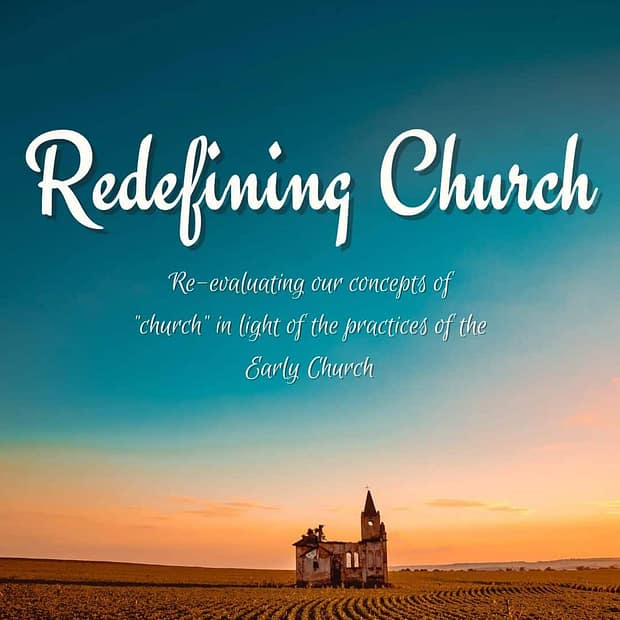The earliest believers provided us with a model for how “Church” should be done, and it wasn’t based on rules or doctrines, but on a genuine faith in Jesus Christ. The way the early Church lived out their faith is far removed from our modern concepts of church, and at the heart of it is the 5th concept in our series on Redefining Church – “the power of community and sharing”.
The early church wasn’t just united by their belief, they formed a genuine community of people who looked out for each other in every way, and shared their possessions among each other, so that everyone’s needs were met, and no one had to go without. What would it look like for the 21st-century church to embrace the practices of the 1st-century church?
Read the key passage
And all the believers met together in one place and shared everything they had. They sold their property and possessions and shared the money with those in need.
Acts 2:44-45
When we think of church in the twenty-first century, do we visualize a unified community that shares their possessions with each other so that no one goes without, or do we think about the building that people go to on a Sunday almost as a tick-box exercise?
Admittedly, these are extremes, and some degree of community does exist in many modern-day churches, but it’s not quite the close community that Luke describes in Acts 2.
The 21st-century concept of community and sharing is a watered-down version of what the early church had, and the idea of sharing all our possessions among our church community would probably horrify a lot of modern-day Christians.

We may tithe to our church and get involved with a meal-supply rota for a family with a new baby or an elderly congregant just out of the hospital, but sharing everything we have with our church community is a scandalous idea.
Heck, there are a lot of people who come to our churches, supposedly a part of our community of believers, who come late and leave early, and we don’t even know their names! That doesn’t speak of community and sharing!
What would change if we were to find a way to adopt the lifestyle of community and sharing that the early church modeled? Would sharing our possessions with others inspire us to get to know them better, and to forge relationships that might be otherwise lacking in our churches? We’ve all heard that passage in Micah 6:8
No, O people, the Lord has told you what is good,
and this is what he requires of you:
to do what is right, to love mercy,
and to walk humbly with your God.
(indeed, it might well be the only passage from Micah that we know, and probably only because Jesus quoted it) but how might this passage apply to the way that we do church? To love mercy, to act justly, and to be humble – could living this out have a transformative effect on our church community and on our wider society?
Sharing things with one another is an act of mercy. It means that no one is with lack, and therefore no one feels in any way excluded. The societal hierarchies that otherwise afflict us are rendered mute because everyone is in the same position: if everything belongs to the community as a whole, then individuals are equal in that individually, they have nothing.
Poverty cannot exist in a sharing community. Theft cannot happen because, technically, everything belongs to everyone. Humility comes from the recognition that outside of the community, we have nothing and depend upon those with whom we have community.
Justice comes from the fact that everyone’s needs are being met by the community, and no one is excluded, ostracised, or looked down upon.
To the outside world, this is a community that is so radically different – so alien – that people cannot help but notice – and perhaps, seeing the benefit of this level of interdependence, the deep relationships that are formed, they start to ask questions and want to be a part of it themselves. We know that more believers joined the early church every day.
Of course, this model of a sharing community-based church reminds us of something else. Something we have, perhaps, forgotten in the 21st-century church, and that is our dependence upon God for everything.
Taking away our individual self-sufficiency is a daily reminder of the God-centered nature of our faith, and that can never be a bad thing.
The early church model of a sharing community that daily walked out the instructions of Micah 6:8 might seem like a radical idea to the modern-day church, but it’s something that we need to give more consideration to.
Would it hurt us to make more of an effort to get to know the people in our church community better? Would it hurt us to pull together to help those who are in need? Would it hurt us to take the time to find out what people need, and tear down any shame-based barriers that may exist?
Could redefining church be as simple as simply beginning to build relationships that create a greater sense of community?

This has been on my mind lately too. I’ve even written a couple posts on this. I love church and it is vital to our spiritual growth, but we have lost (in many ways) the true meaning of what it means to be the church.